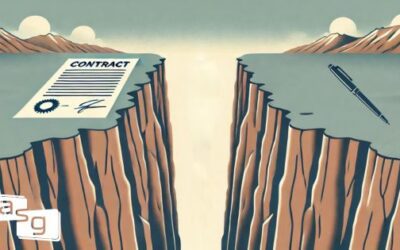Today, I want to talk to you about is learning. Just to cut to the chase – not enough time is spent on breaking down the skill of learning. Yes, learning is a skill. If you think learning happens automatically, or that learning is a default mechanism as humans you’re out of your mind.
Particularly, deliberate learning. Yes, obviously, there are exceptions. When you’re a kid and you touch a hot stove – you learn pretty quickly not to do that. But, that’s not deliberate learning. Deliberate learning takes skill and the greatest, most successful people are learners. They have honed that skill over time. If you’re not developing your ability to learn then you’re stagnant. Plain and simple. You’re not growing. Unfortunately, too many are this way.
Key Skills for Learning:
Curiosity
Curiosity is absolutely critical. The lack of curiosity I see in business, across all aspects, is astronomical. Most of us just accept what’s in front of us and move on. We don’t ask question often enough. Why? What’s going on? What’s the objective? What makes this tick? Why is this result different from the other? What changed?
No one ever asks these questions. They hear the result, shrug, say it is what it is, and keep moving. So, first thing, people need to be far more curious in their day-to-day lives to be good learners. Develop your curiosity.
Self-awareness
People suck at self-awareness and self assessment. You can’t learn if you’re not open enough to understand what you don’t know. This one gets me every time. It happens all the time. Someone will start a conversation with me and open with “I’ve been doing this for [insert 10, 20, 30, 40, 50] years….” I’m out immediately. You don’t know how to learn. They’re coming out of the gate by basically arguing that they don’t need to learn. “I’ve been doing this for 15 years, and I’ve seen this, I know this, I’ve done this…”
They’re telling you that they don’t need to learn anymore, that they know enough, that someone else needs to prove to them that they need to learn. These people don’t stop and take the time to assess what they don’t know or what they haven’t learned over the last 10, 20, 50 years. They’re like teenagers.
Teenagers are the worst at this. They don’t take the time to acknowledge and sell-assess ‘what do I know, what do I not know?” We need to take the time to ask ourselves ‘where can I improve, when was the last time I was exposed to something new, when was the last time I’ve done some research or read about this, have there been any changes in my space, have there been changes in the information, where am I deficient?’
That last one, ‘where am I deficient’, that’s where people struggle. People don’t like it, it doesn’t make them feel good. I love finding a deficiency. For me, that’s a win, that’s a gap I can fill. It’s a little achievement – I didn’t know this and now I do.
Most people are the opposite. Rather than being curious they instead believe they don’t know something, they don’t want to know about it, they don’t want to try it because they don’t want to fail at learning it. They think failing at learning something means that people are going to think that they’re not that good and they don’t want that so they’re going to pretend it doesn’t exist. You have to do self-assessment and assess where you are, what you know, and what you don’t know.
Humility
You need to have humility, another tough one for people. If you don’t have the humility to acknowledge that you don’t know something, that you’re wrong, that there’s a gap in your awareness, you’re not as good as you think you are, or that there’s always room for improvement, then you’re stuck. If you can’t do those things then you can’t learn.
Absorbing Information
The last skill of learning we need to work on is absorbing information. There’s skill behind searching for information, processing information, benchmarking information, comparing information, dissecting information, learning how to diagnose what you’re searching for. Once you have the first 3 figured out, this last step is just bringing in information and drawing conclusions from that information. All of these things take skill.
Where in life were we ever taught how to learn? They didn’t teach us all this is school, they told us what we needed to learn but they didn’t teach us how to learn it. They don’t teach us these skills at work, as a matter of fact, it’s the opposite – ‘just do what we tell you to do.’ They don’t encourage learning.
So here’s the message – start building your learning skills. Add in some humility, do some self-assessment, understand what you do and don’t know, and understand that it is a skill to be open enough to processing new information. Be open enough to understand that you don’t know everything, start learning how to ask more questions, start learning how to find good information, start learning how to benchmark information and how to compare it to other information.
Work on your learning skills and watch what happens in your career. Watch how fast you become a valuable asset to the organization that you work for. Really good learners become investments for companies. Poor learners become a liability and an expense, and nobody wants to be an expense.
If you want to start investing in yourself start here.
If you want to invest in your sales team, reach out to our sales team.




0 Comments